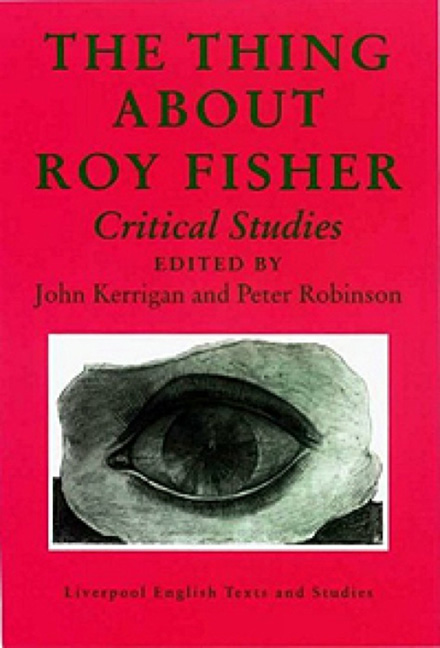Book contents
- Frontmatter
- Contents
- Notes on Contributors
- Acknowledgements
- Abbreviations
- Introduction
- 1 Roy Fisher on Location
- 2 ‘Menacing Works in my Isolation’: Early Pieces
- 3 TheWork of a Left-Handed Man
- 4 Osmotic Investigations and Mutant Poems: An Americanist Poetic
- 5 ‘Making Forms with Remarks’: The Prose
- 6 Cutting-Edge Poetics: Roy Fisher's ‘Language Book’
- 7 A Burning Monochrome: Fisher's Block
- 8 ‘The Secret Laugh of the World’
- 9 ‘Exhibiting Unpreparedness’: Self, World, and Poetry
- 10 ‘Coming into their Own’: Roy Fisher and John Cowper Powys
- 11 A Furnace and the Life of the Dead
- 12 Last Things
- Roy Fisher: A Bibliography
- Indexes
5 - ‘Making Forms with Remarks’: The Prose
- Frontmatter
- Contents
- Notes on Contributors
- Acknowledgements
- Abbreviations
- Introduction
- 1 Roy Fisher on Location
- 2 ‘Menacing Works in my Isolation’: Early Pieces
- 3 TheWork of a Left-Handed Man
- 4 Osmotic Investigations and Mutant Poems: An Americanist Poetic
- 5 ‘Making Forms with Remarks’: The Prose
- 6 Cutting-Edge Poetics: Roy Fisher's ‘Language Book’
- 7 A Burning Monochrome: Fisher's Block
- 8 ‘The Secret Laugh of the World’
- 9 ‘Exhibiting Unpreparedness’: Self, World, and Poetry
- 10 ‘Coming into their Own’: Roy Fisher and John Cowper Powys
- 11 A Furnace and the Life of the Dead
- 12 Last Things
- Roy Fisher: A Bibliography
- Indexes
Summary
To write in prose grants a poet ‘the freedom to construct a poetic entity capable of including what poetry has been told to exclude’, according to Stephen Fredman. His book Poet's Prose is an analysis of American writers who have felt the need to abandon lyric forms in favour of extended prose works that function a-generically and which defy the narrowness implied by the usual oxymoronic term for such work, the prose-poem. Fredman dismisses this term as the ‘codification of a moment of generic dissolution’.
‘Poet's prose’ seems a useful alternative for Fredman's purposes, which include the identification of a permanent crisis in American poetry, a post-colonial lack of confidence in lyric poetry as a vehicle of truth, and a concomitant turning to a ‘prose of fact’. His acknowledgement of the anxiety of a poet who ‘knowingly sacrifices a vast and recognisable prestige’ is useful, but it does not fit the position of British poets like Roy Fisher.
Fisher's partial renunciation of lyric from the mid-1950s onwards was a way of accommodating his own crisis of faith in the prestige forms of the empirical lyricism of the Movement orthodoxy, and a way of creatively avoiding its structures. Although it is beyond the scope of this essay, Fisher's detestation of the Movement's ‘misanthropy, both social and artistic’ led to a dual recognition that to de-Anglicize England meant in part to defamiliarize English poetry.
Fisher's works in prose are generally hybrid forms; he has seldom turned to a formalized genre, such as prose fiction, nor to a fluid one, such as prose-poetry.They are nearly always the result of schemata or systems of writing developed solely for the purposes of generating themselves.The results of adopting these experimental processes and procedures are Fisher's most formally daring texts, which often withdraw from the topological and social concerns that are sometimes privileged in readings of his poetry.
The sixteen passages of prose in City (I am referring throughout to the text as it appears in Collected Poems1968 and in subsequent editions of poems) might be said to suggest such readings.
- Type
- Chapter
- Information
- The Thing About Roy FisherCritical Studies, pp. 128 - 148Publisher: Liverpool University PressPrint publication year: 2000



